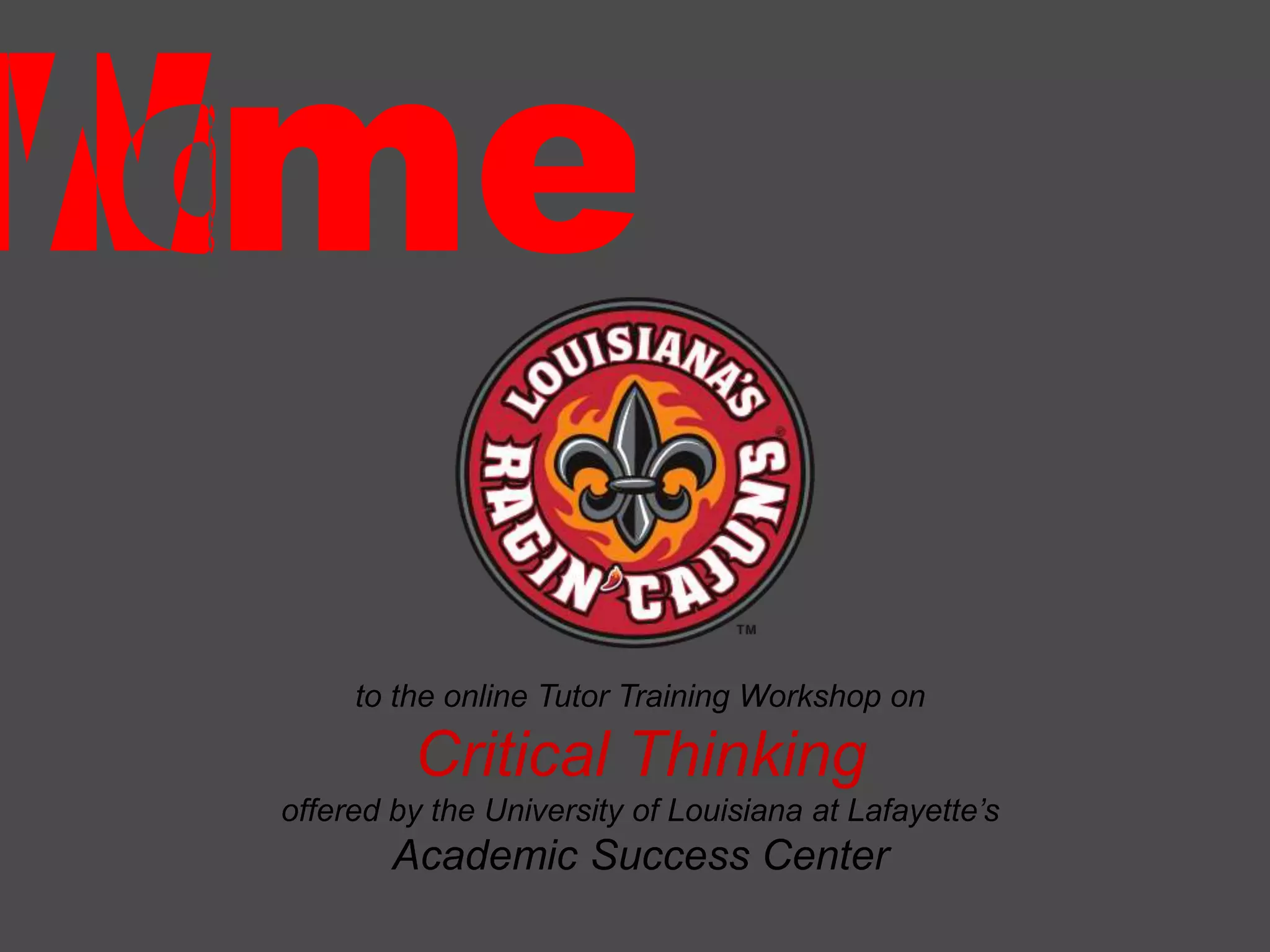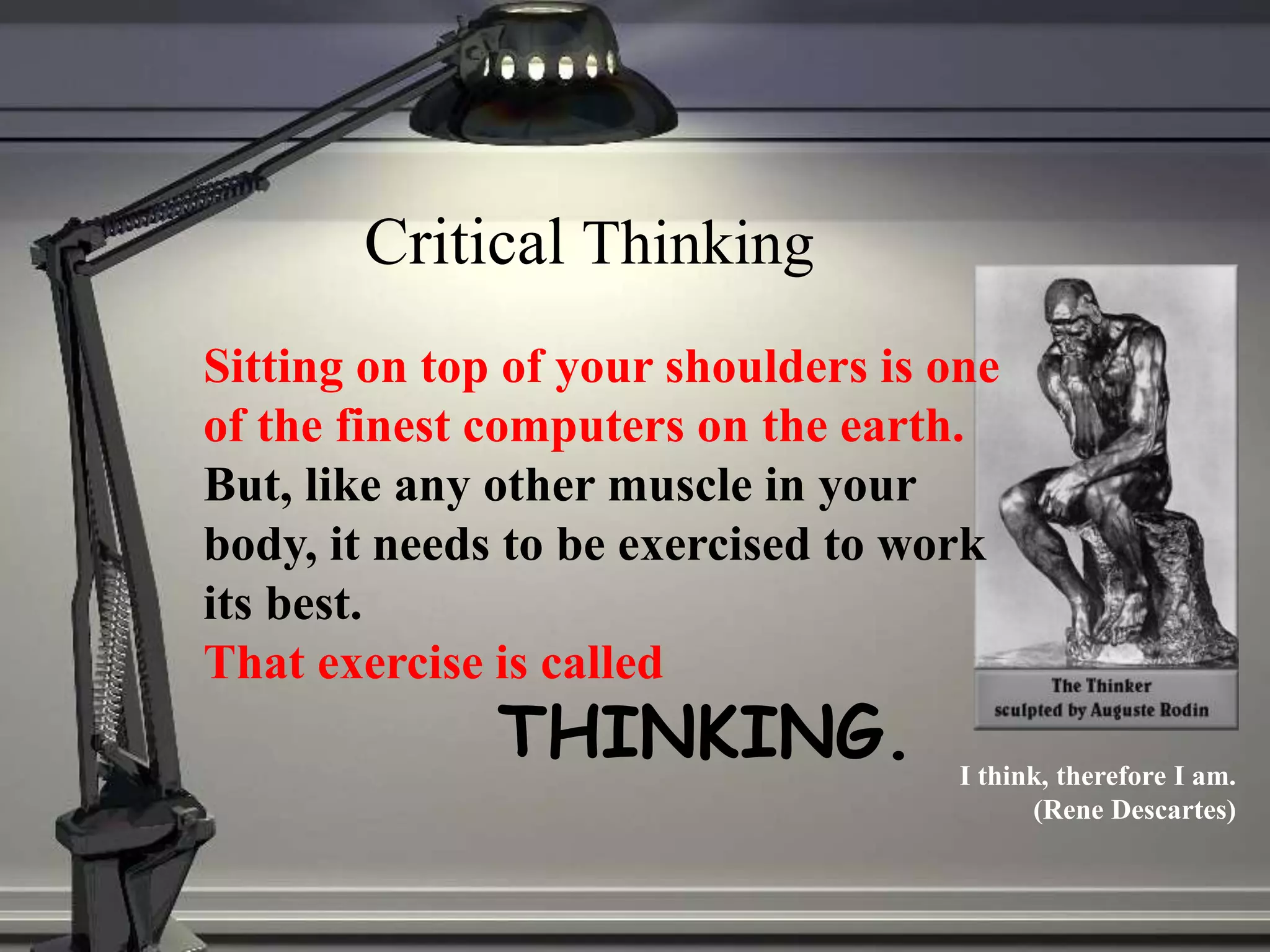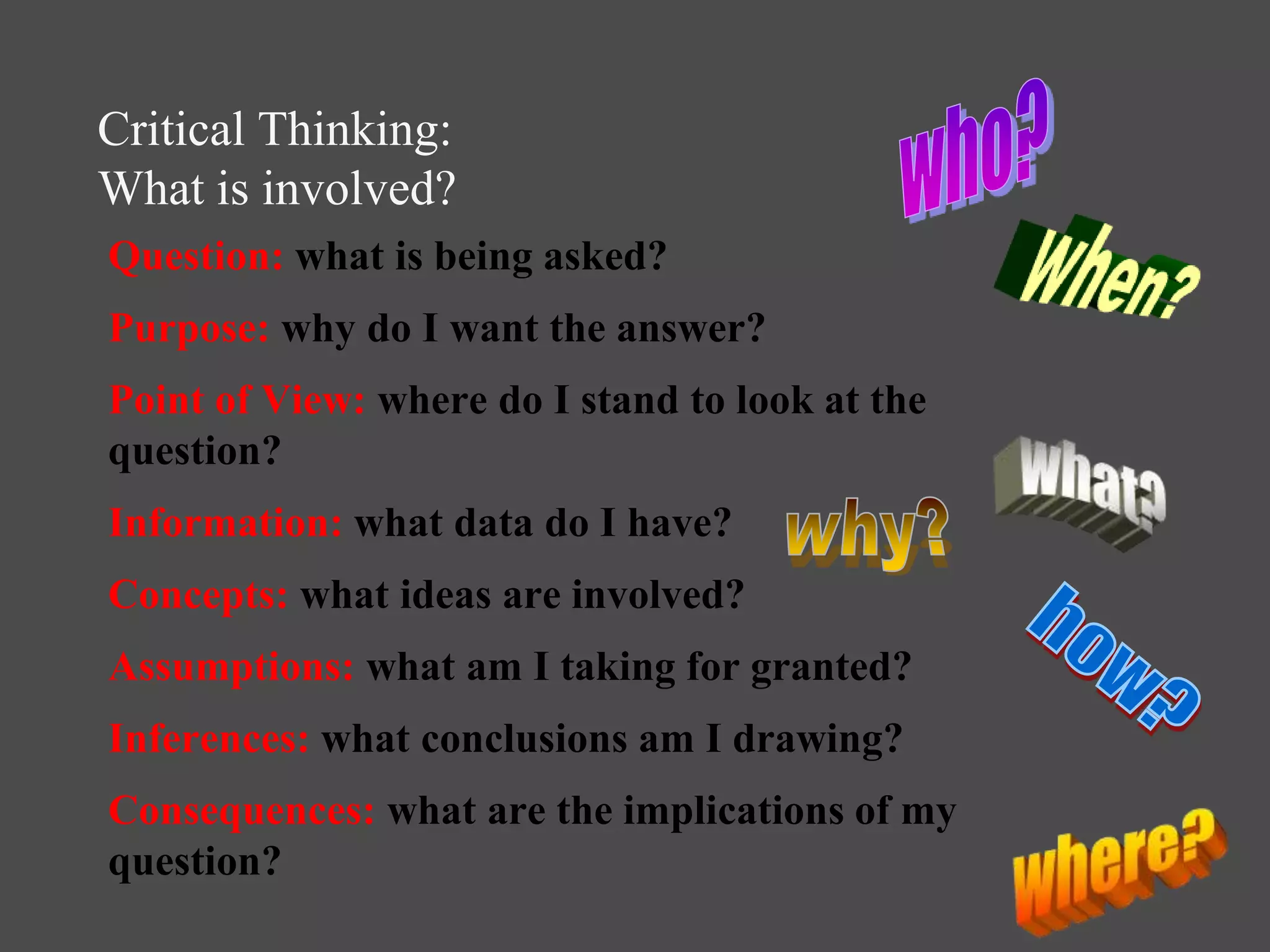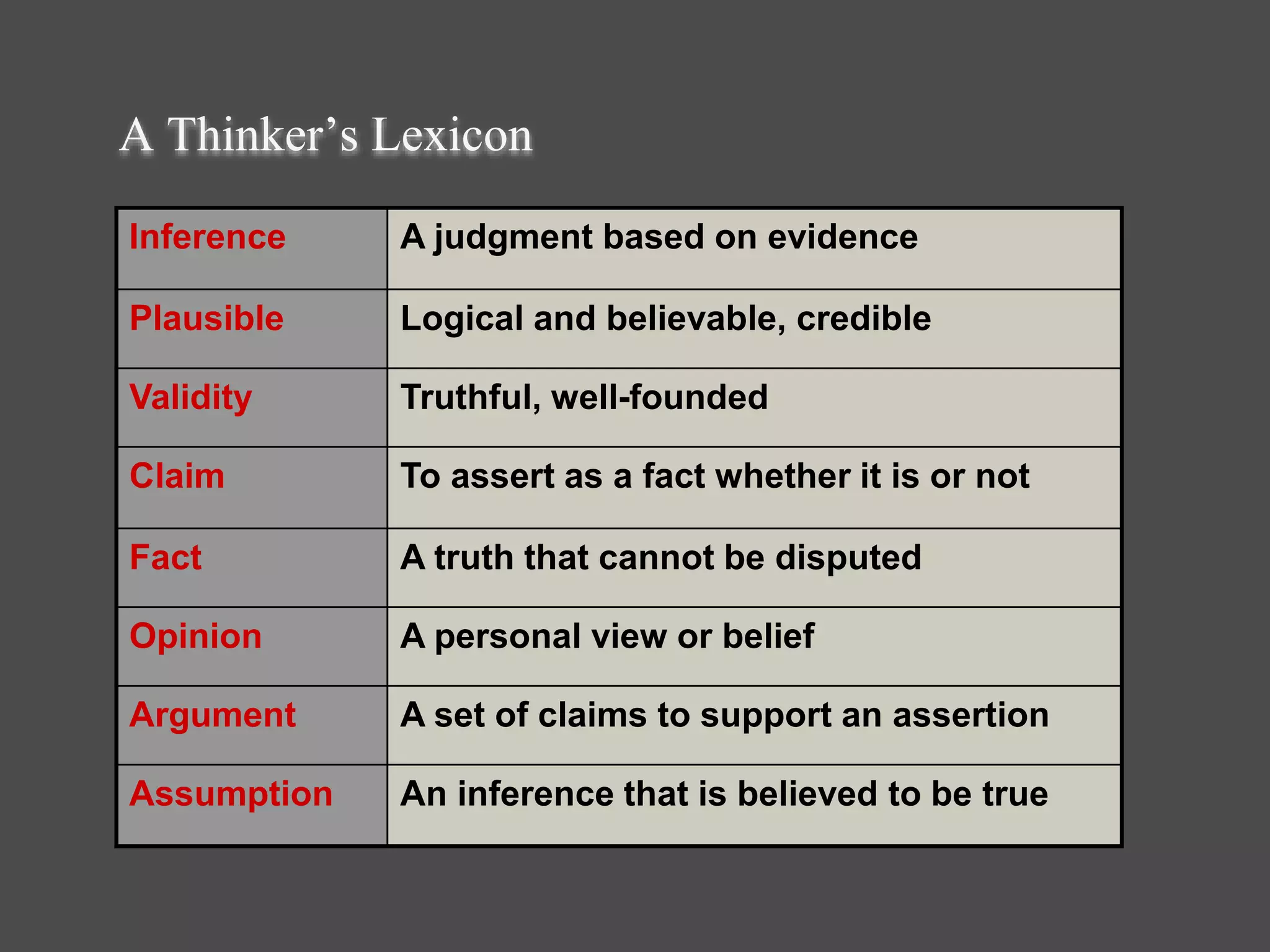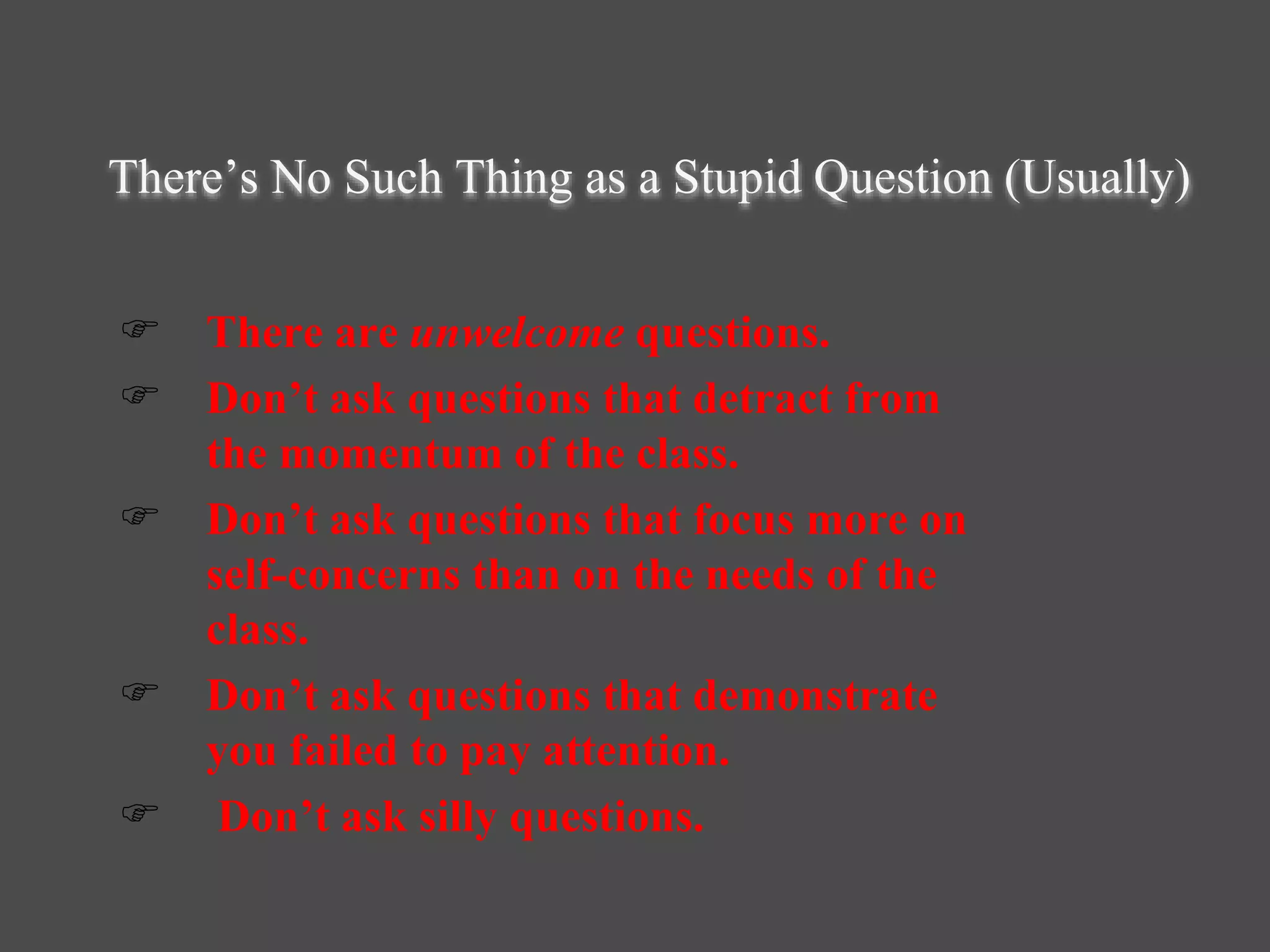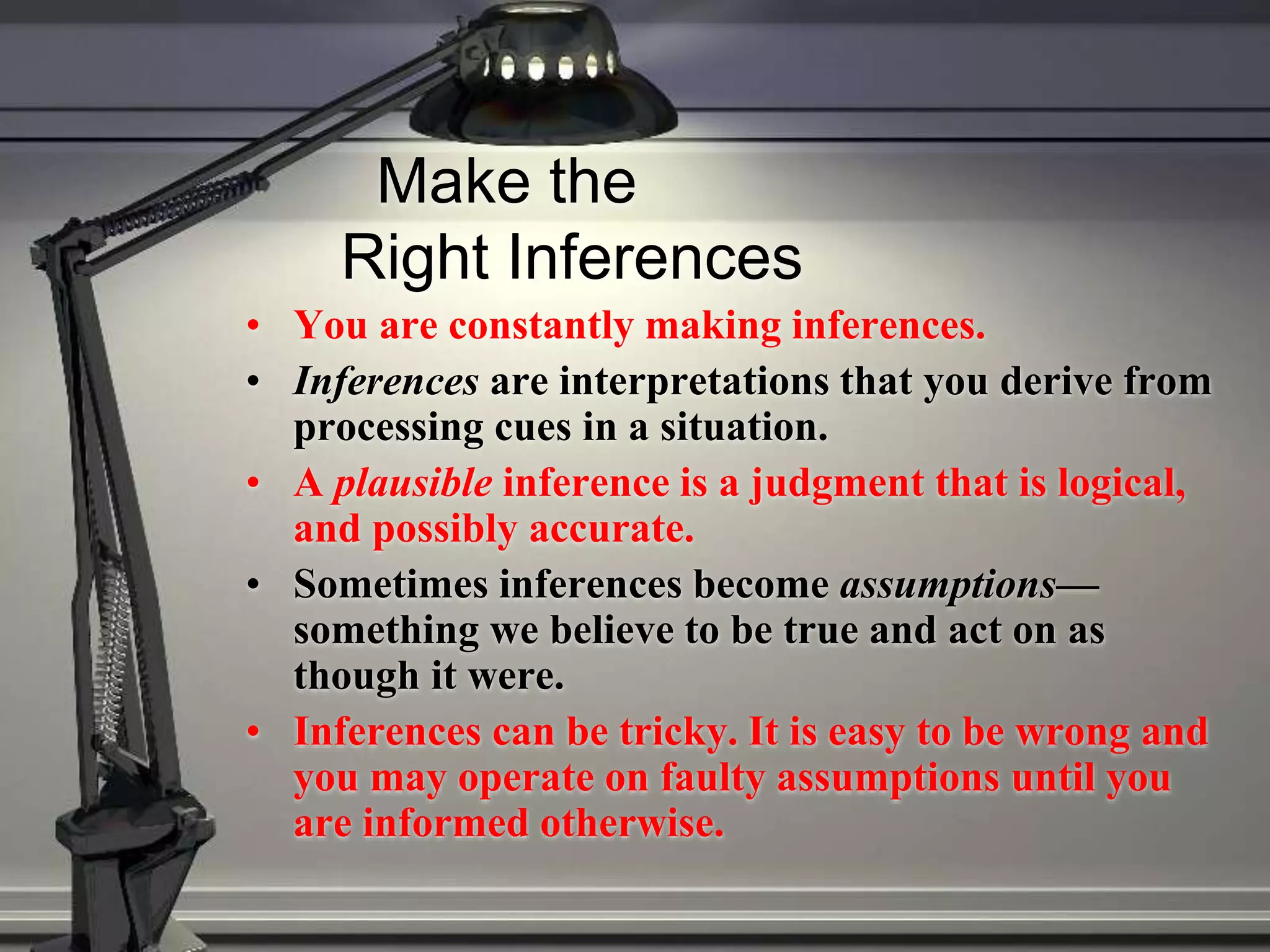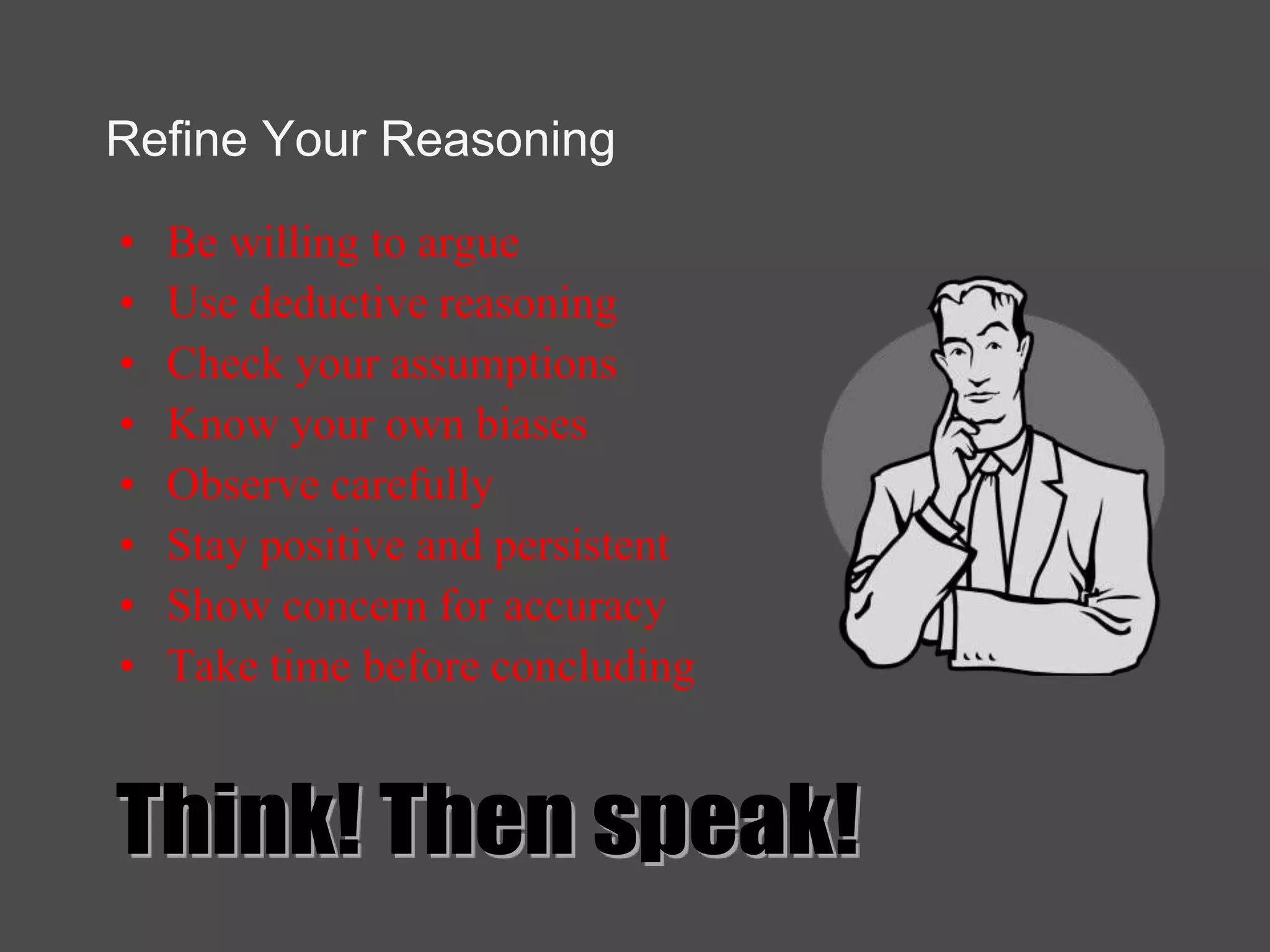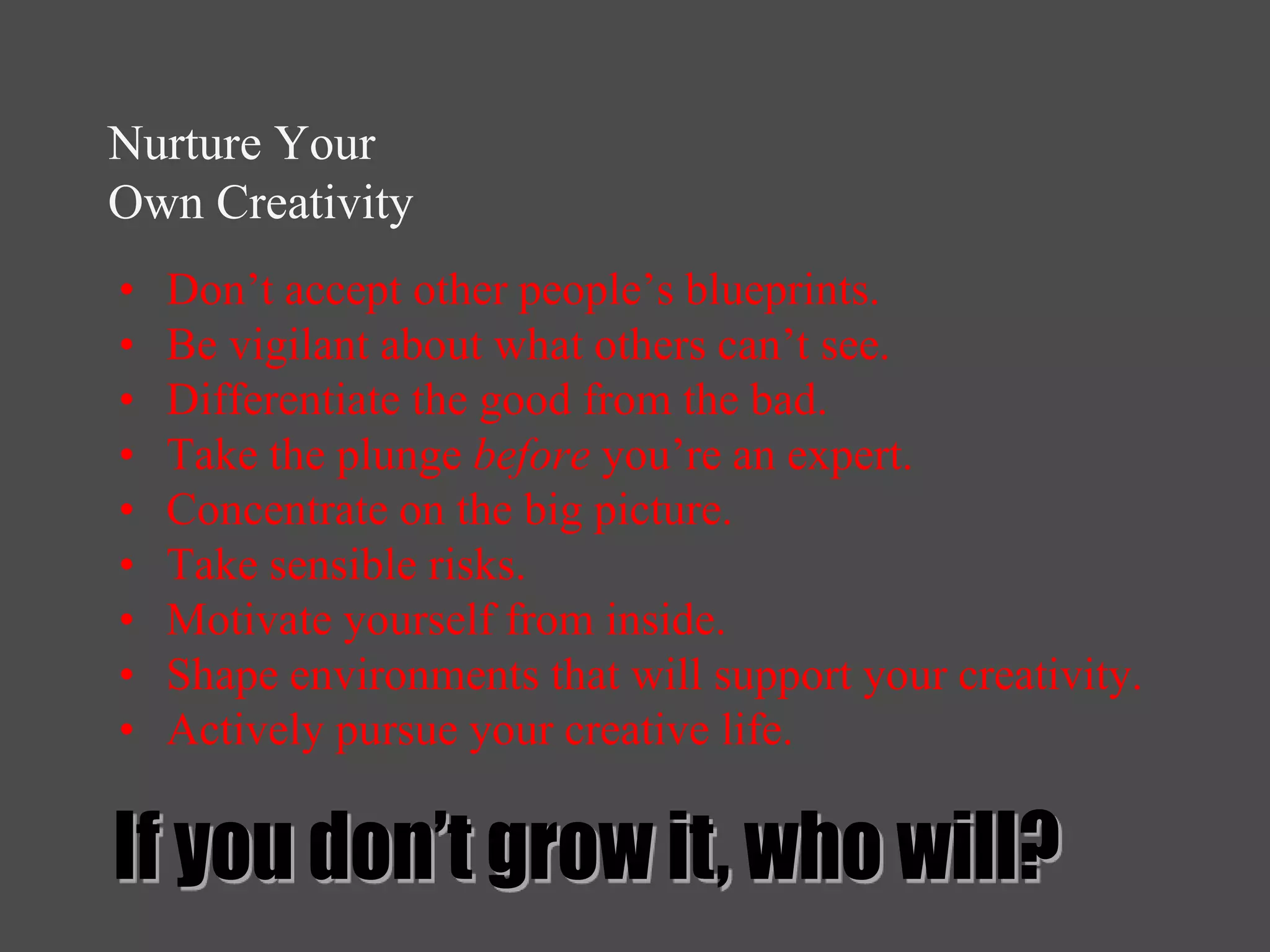This document provides an overview of critical thinking, including definitions, aspects, skills, and strategies. It defines critical thinking as problem solving that looks deeper than the surface level and applies logic. The four aspects are abstract, creative, systematic, and communicative thinking. Key critical thinking skills discussed are identifying problems, gathering information, making inferences, forming arguments, and recognizing biases. The document encourages asking questions, offering criticism, and refining reasoning abilities as ways to strengthen critical thinking.
